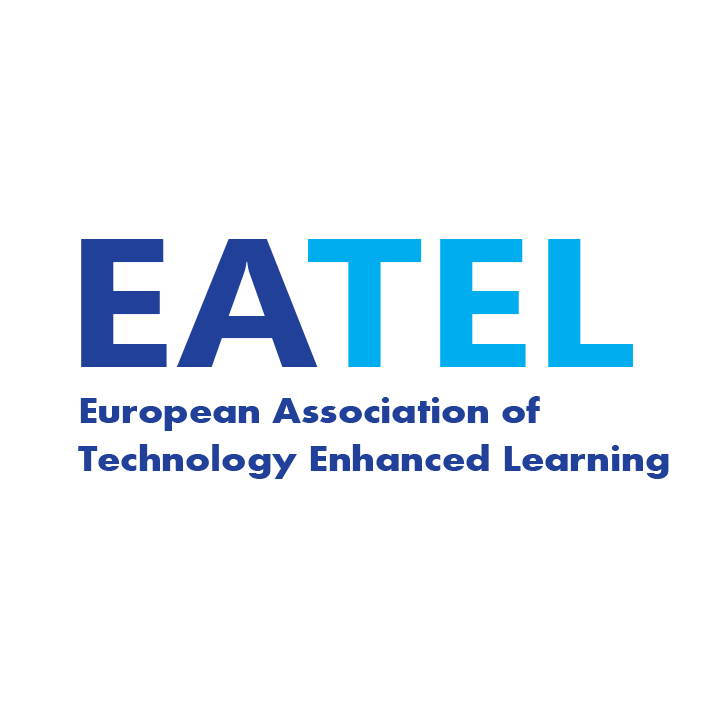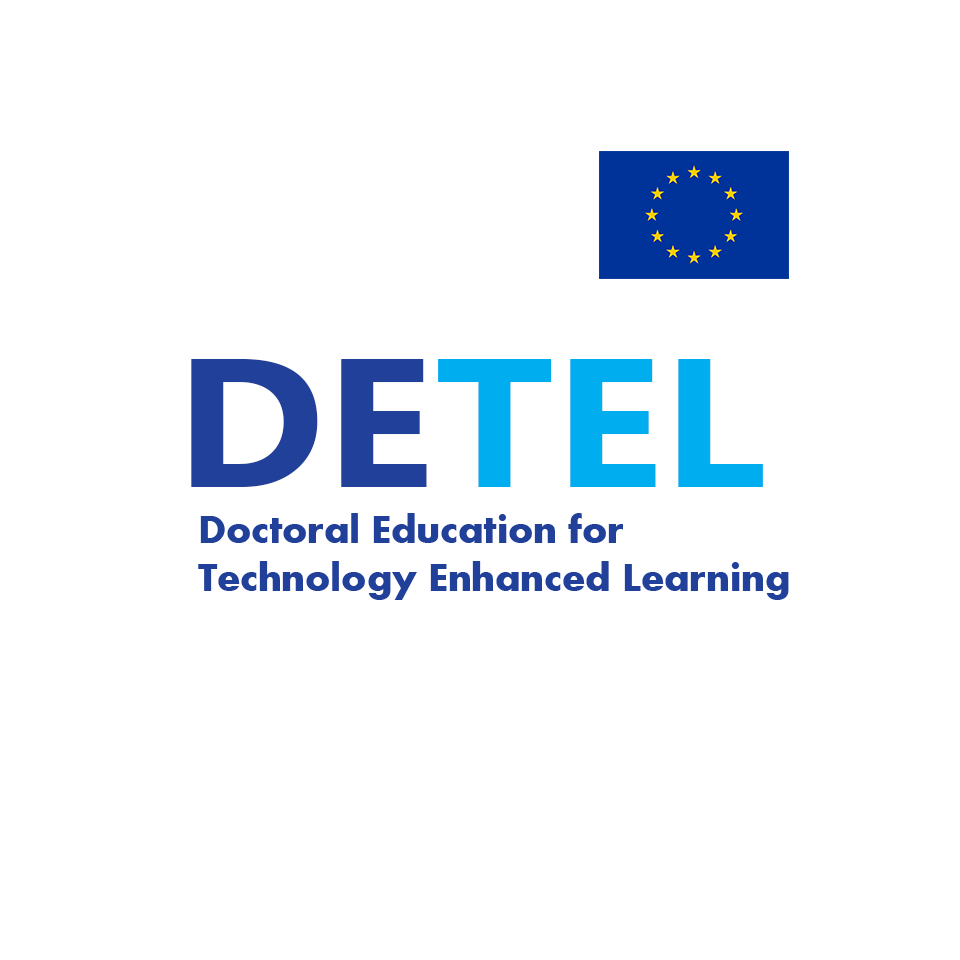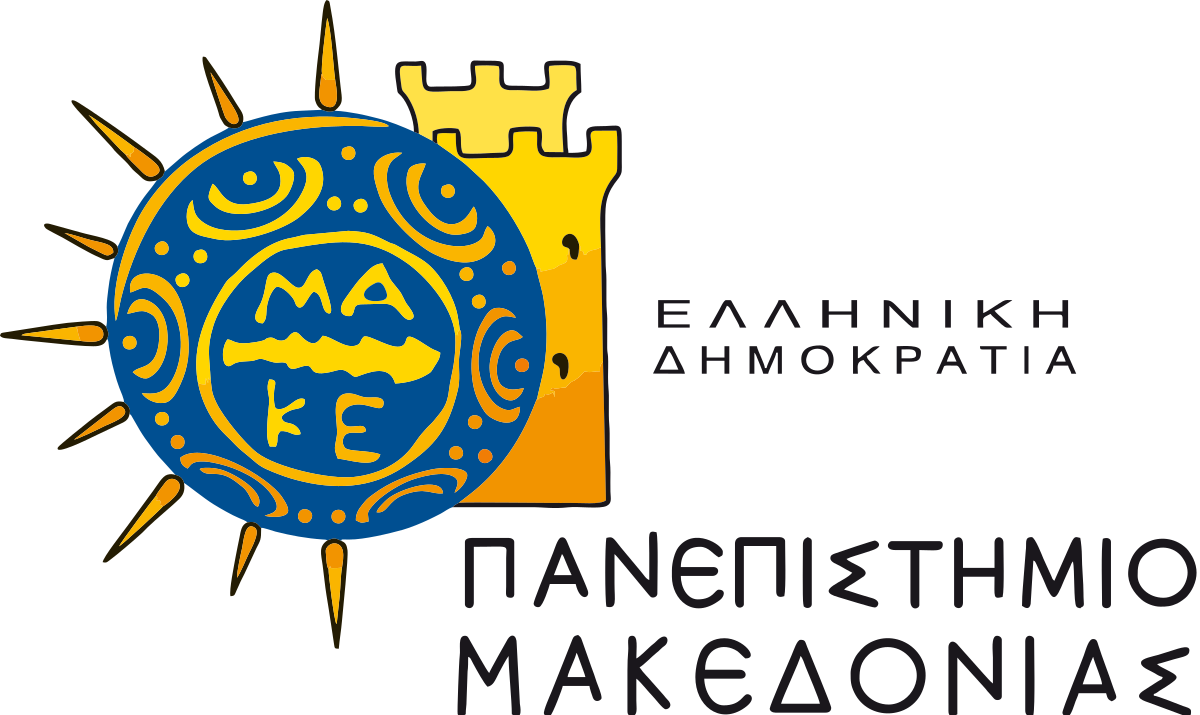ANNOUNCEMENT
We are pleased to announce the 16th EATEL Summer School on Technology Enhanced Learning (JTELSS) that will take place on May 21-28, 2022 at Sani, Halkidiki, Greece. The summer school is organized by the European Association of Technology Enhanced Learning (EATEL), the Doctoral Education for Technology-Enhanced Learning (DE-TEL Erasmus+ project), and the SMILE lab of the University of Macedonia.
The EATEL summer school provides a stimulating learning environment where participants get opportunities to develop research skills, increase their knowledge base, collaborate with others in their own and complementary research areas, engage in debate, have access to experts in the field, and discuss their own work.
The programme covers topics from a broad range of domains which contribute to advancing the field of Technology Enhanced Learning (TEL). TEL research projects are encouraged to provide doctoral candidates with a perspective of state-of-the-art research under study in their working groups and use the summer school for active dissemination of recent research results. The programme also includes practical and methodological workshops as well as opportunities for PhD students to develop their research and discuss their doctoral work. Furthermore, it will help doctoral students to build bridges for future collaborations with experts in the field and peers across Europe. The summer school is open to PhD students and instructors from all countries.
PhD students applying to participate in the summer school are also invited to propose workshops.
CALL FOR WORKSHOPS
If you would like to offer a workshop at the summer school, we invite you to submit it through this form: https://bit.ly/jtelss22workshop, describing your contribution, which should demonstrate how your presentation/activity will benefit the PhD students attending the summer school (mainly early to mid-stage). If your workshop proposal is selected, the information you submitted in the proposal will be published on the summer school website.
If your workshop was submitted and accepted for the summer school in 2020, it will be automatically accepted for the summer school 2022. However, please, fill in the submission form and select ‘resubmission’ in the last section of the form.
You can submit multiple workshops. Each workshop will require its own submission.
The summer school offers five types of workshops. You can read more about them and the Summer School Activity Framework in the article “Interdisciplinary Doctoral Training in Technology-Enhanced Learning in Europe” in ![]() Frontiers in Education, 2020.
Frontiers in Education, 2020.
Your proposal has to fit into one of these categories:
- Thematic workshops cover one or multiple wide or narrow areas of TEL research or practice. The topics of the workshops change year by year, driven by community interest. Some of the most common topics are listed below.
- Methodological workshops focus on different research methodologies that can be applied in various contexts of TEL research, such as systematic reviews, resign-based research, statistics for TEL, field studies, and many others.
- Soft-skills workshops cover topics such as academic writing, dissemination & communication, or presentation skills.
- Informal learning sessions encourage active participation and allow participants to present their work, bring up their questions and challenges, without any restriction to specific topics. These sessions play a key role in developing strong ties in the community, contributing to the social atmosphere of the event. The following informal learning sessions are offered by the organization team: Ice-breaker, Pecha Kucha, Pitch and Poster session, Fish Bowl, Game Night, and Speed Mentoring.
- Career workshops usually target late-stage PhD candidates and focus on opportunities for PhD graduates in both academia and business.
The summer school program also includes keynotes. However, the keynote speakers are selected and invited by the organization team. It is not possible to propose lectures or keynote sessions.
- Established researchers present keynotes covering central themes as well as frontiers topics. Since 2018, it was decided to accept only interactive workshops via the open call, removing the lecture category from the open submission process, while at the same time increasing the number of keynotes and managing the speakers by drafting process centrally through invitation.
Workshop instructions: We encourage interactive sessions rather than information transfer, and your proposal should include details about how you plan to engage PhD students. Workshops are usually 90 minutes or 2 x 90 minutes.
We encourage to adapt the activities of the workshops to outdoor environments. Holding some workshops outdoors will reduce the risk of contracting COVID-19 by the participants. This format of ‘outside’ sessions has been successfully used in the pre-coronavirus summer schools. Many workshop organizers held their sessions on the beach, next to a pool or in the shadows of terraces, replacing slides with creative and informal tools and activities. The participants appreciated such an engaging format very much. At the same time, well-ventilated rooms will be available for those workshops where a large screen is necessary.
Costs: Please note that workshop organizers are expected to cover the costs of their trip and accommodation (in some cases, it is covered through their TEL research projects).
LIST OF TOPICS
Thematic Workshops on the latest trends and key concepts of TEL
- Online and Blended Learning Environments
- Open and Distance Education
- Serious Games and Gamification
- Learning Analytics
- Orchestration of Technology-Enhanced Learning
- Technology-Enhanced Assessment
- Adaptive and Personalized Learning
- Intelligent Tutoring Systems
- Mobile and Ubiquitous Technologies for Learning
- Computer-Supported Collaborative Learning
- Formal and Informal Learning
- Technology Enhanced Language Learning
- Motivational and Affective Learning
- Augmented Reality and Virtual Reality in Education and Training
- Sensors, Robots and Makerspaces in Education
- Artificial Intelligence Applications in Education
- Technologies for Accessible and Inclusive Learning
Methodology workshops
- Research Methods in Technology-Enhanced Learning
- Research Design
- Research Ethics
Soft-skills workshops
- Academic Writing and Publishing
- Data Visualization and Presentation of Research Results
- Boosting Research Careers Using Social Media
- Pitching of Research Ideas
- PhD Life and Supervisor Management
Informal learning sessions
- Pecha Kucha – introduce yourself in 2 minutes with 2 slides
- Fish Bowl – highly engaging and intensive discussion
- Speed Mentoring – short one-to-one mentoring with several senior researchers
- Educational Board Games – learning research design in a highly informal setting
- Technology-Enhanced Learning community-development discussions
Career workshops
- Business and entrepreneurship opportunities in TEL
- European Funding for Research in TEL
PhD students presenting own research
- Poster session
- Mini-doctoral consortium
IMPORTANT DATES FOR WORKSHOP ORGANIZERS
Call for Workshops
- 21.02.2022 – Submission deadline for workshop proposals (submission is closed)
- 28.02.2022 – Notification of acceptance for workshop proposals
Registration
- 28.03.2022 Registration opens (updated)
- 28.04.2022 Registration deadline (updated)
Summer School
- 21.05.2022 – Arrival to Sani
- 22.05.2022 – Pre-summer school full-day social event
- 23-27.05.2022 – Summer school dates
- 28.05.2022 – Departure from Sani
VENUE AND ACCOMMODATION
The hosting city of the Summer School 2022 is Sani, a famous area of Halkidiki, located 83 km from Thessaloniki, the second largest city of Greece. Halkidiki is the region in the north of Greece, projected to the southwest in the Aegean Sea, and extended to three peninsulas: Cassandra, Sithonia and Athos. Halkidiki is one of the most well-known summer destinations of Greece blending the Aegean turquoise beaches with the pine trees nearby the sea. The special beauty of the region resulted in the characteristic phrase “Like Halkidiki, nowhere!” when someone wants to describe Halkidiki.
The Summer School will take place in the Simantro Beach Hotel, a 5-star resort located in Sani, Halkidiki. The plenary sessions of the school will be hosted by the main conference hall of the hotel. The Hotel is built on the coastline and features several restaurants and bars, outdoor swimming pools, a tennis court, a panoramic terrace, a garden, and a banquet hall. There is a stony beach equipped with umbrellas and beds.
Halkidiki can be easily accessed by car and public transport. The International Macedonia Airport of Thessaloniki is one of the busiest airports in Greece and it is well connected by all types of airlines and airline networks. The airport is interlinked with a road network that is among the best in Northern Greece. Travel time from the airport to the hotel is approximately 1 hour. Several transfer options from and to the airport are available for a reasonable price. Read more.
COST OF SUMMER SCHOOL
The EATEL summer school follows a non-profit scheme. The organizing committee members work as volunteers to make the event possible. The educational programme is provided free of charge. The cost of the school covers accommodation, meals, transfer, excursions, and printed materials.
Full-week package
Our special discounted offer for the highly-recommended full-week participation “Full-week Package” covers the following:
- Accommodation for 7 nights (check-in on May 21 and check-out on May 28) in a double room (one person in a room)
- Meals (full board: from dinner on May 21 to breakfast on May 28)
- Sunday full-day excursion
- Wednesday half-day excursion
- Transfer from and to the airport
- Printed materials
The prices will be available on the Registration fees page.
Daily participation
We will have a daily price available. The participants can choose to attend only a part of the event. The corresponding options and the prices will be available on the Registration fees page.
Funding sources
PhD students can use different funding schemes to cover the cost of the summer school. As scholarships are only available for applicants from low-income countries (see next section), we advise you to look for local or university funding. The EATEL summer school will provide great value to the progress of your research and studies. The contents of the school can extend or replace some of your courses.
Another option to cover the cost is to apply for an Erasmus+ teacher mobility funding (https://ec.europa.eu/programmes/erasmus-plus/opportunities/staff-teaching_en). For this option, please, contact your international relations office. Remember, that this year the school is hosted in collaboration with:
- Smart & Mobile Learning Environments Lab – SMILE LAB (https://smile.uom.gr/), University of Macedonia, Thessaloniki
Instructors who plan to deliver workshops often use funding from research projects to cover the cost. The EATEL summer school is a primary event in Europe for dissemination and networking in the Technology-Enhanced Learning community.
Local participants
For local participants from the nearby regions, we offer a special rate, which includes four-nights accommodation, full board, printed materials, excursion on Wednesday and Gala dinner. For these guests, arrival is expected on Monday morning, May 23 and departure on Friday, May 27.
SOCIAL PROGRAM
The social programme includes a full-day excursion on Sunday, May 22, a half-day excursion on Wednesday, May 25 and a Gala dinner on Wednesday evening.
The summer school programme includes a wide variety of informal learning sessions and optional social activities every evening.


